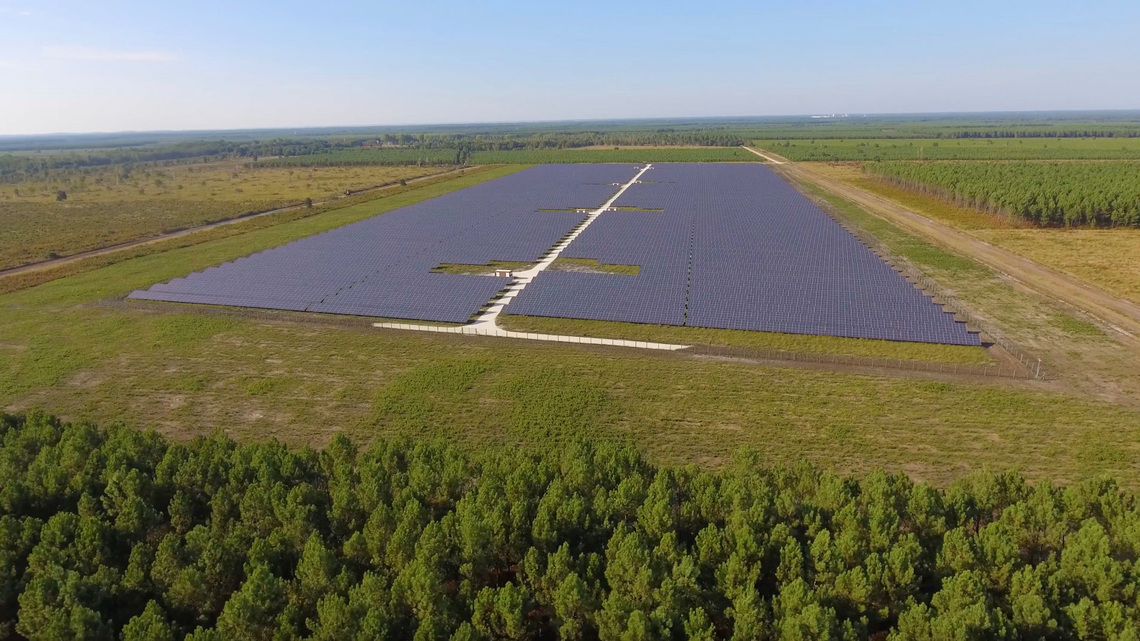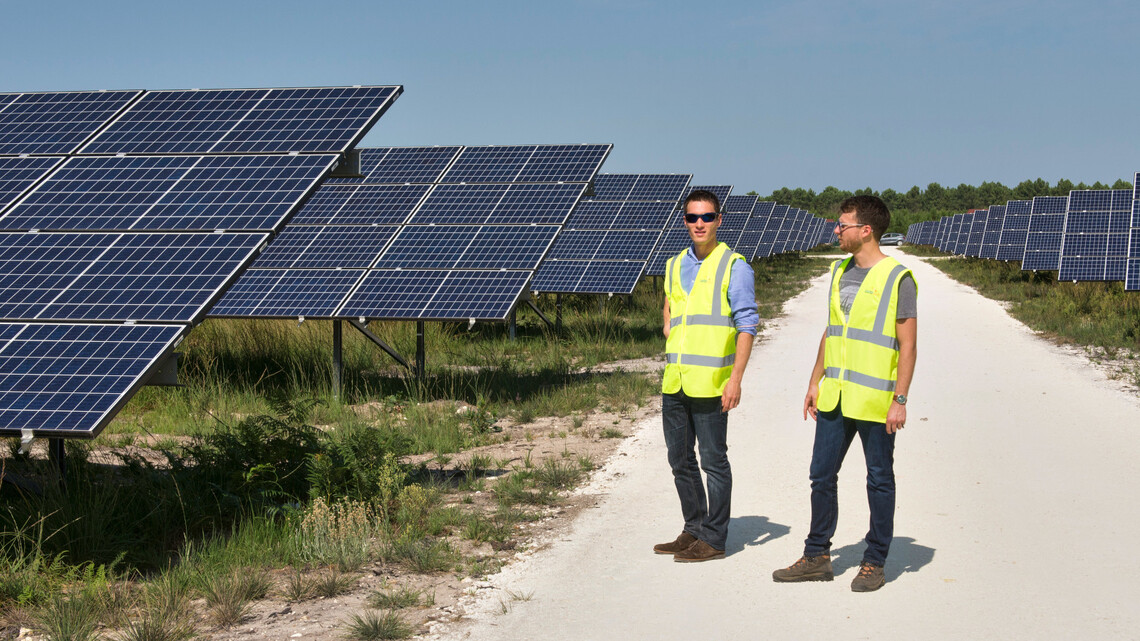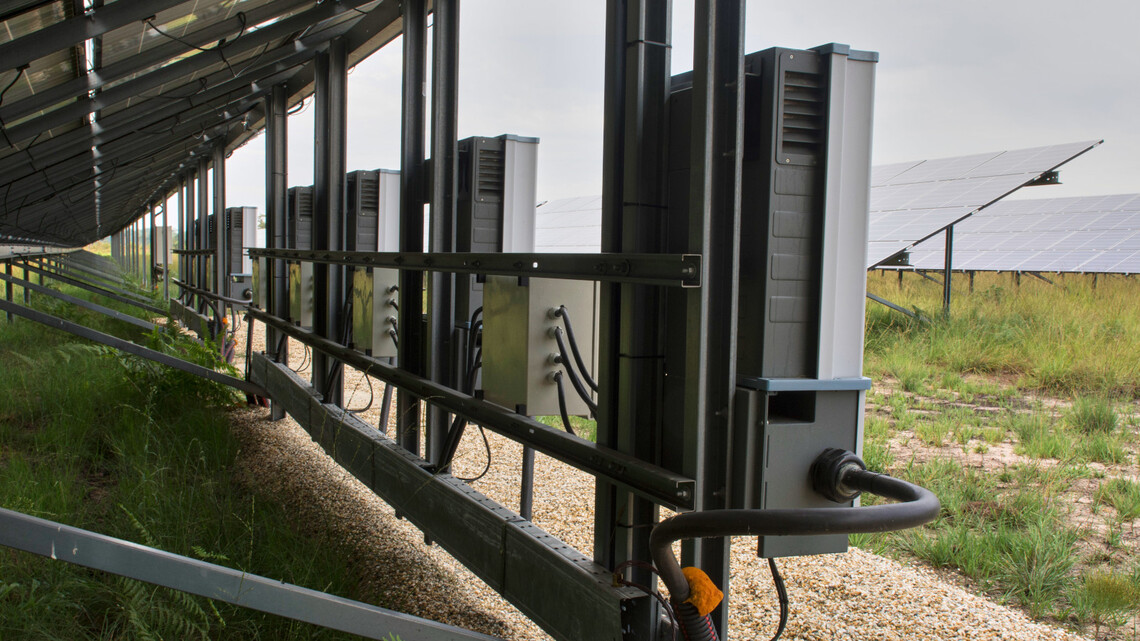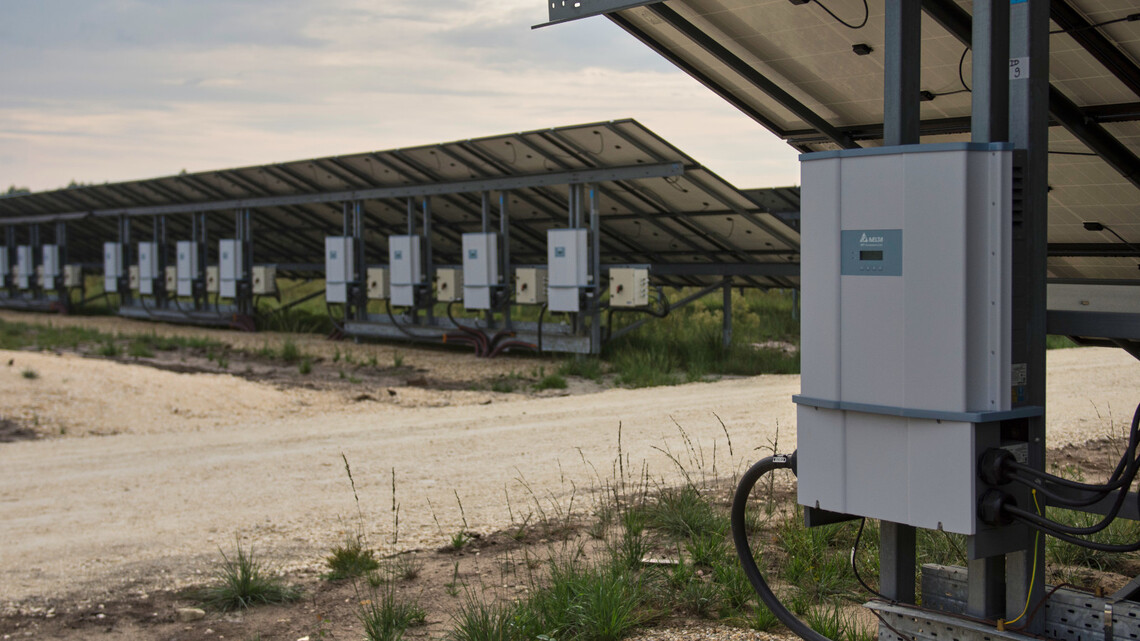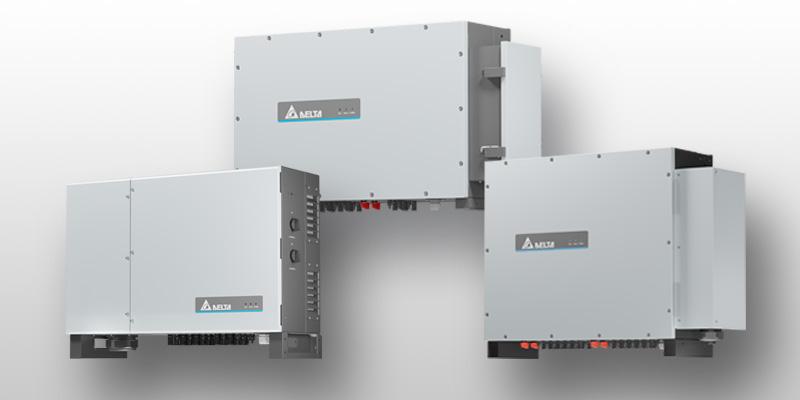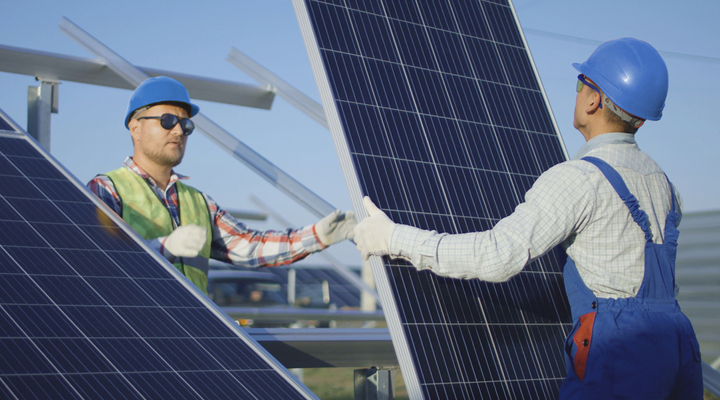Caudos, France
Gaitasun impresses investor with Delta inverter, builds first solar plant of its kind in France
Now that Caudos 4 has been online for a year and Caudos 3 over half a year, Gaitasun and the investor are very satisfied.
Jonathan Chau co-founded the engineering and advisory company Gaitasun in 2015 and serves as the company’s CEO. Before launching Gaitasun, he gained many years of experience in utility-scale solar at Juwi. With most of the projects he’s worked on, there has been a developer who specializes in renewables, or a financial institution as the investor.
This time was different. A Paris-based professional who owns land in the south of France contacted Chau about constructing two new solar plants to diversify income from his tree farm there. The two had worked together on the existing plants at the site, Caudos 1 and 2, when Chau was still at Juwi. Now the plan was to build Caudos 3 and 4. As previously, the investor was looking much further ahead than the 20-25 years typically considered for utility-scale PV projects.
A vision of a resilient and future-proof solar park
Every aspect of the new plants received close attention. The investor intended to ensure their long-term viability by carefully examining each individual component himself, including the inverter.
For the technical system design, Gaitasun considered both central inverters and string inverters. A central inverter offers certain advantages, but creates a single point of failure. For a 12 MWp project like Caudos 3, central inverter downtime of several days could cause a considerable loss of revenue. Limiting that risk requires maintenance agreements that guarantee rapid (one-day) on-site response times. Contracts like that are costly and must be retained for the entire life of the plant. Should a single string inverter fail, in contrast, the plant loses only a small portion of its output until repairs are made. Less costly service contracts are suitable.
Based on the advice from Gaitasun, the investor decided on a design with string inverters because they are the most future-proof option. It’s easy to replace a standard string inverter, and that will never change. But the regulatory body in France had never seen a large solar plant with decentralized inverters like this before and had not anticipated such a design in the norms. Satisfying their requirements would be a challenge.
Delta impresses with modularity and interoperability
In the early phases of the Caudos 3 & 4 projects, Delta Solar Inverter Product Manager Patrick Schahl travelled from Delta’s Teningen, Germany location to present the new 88 kW M88H string inverter to Gaitasun in France. The investor had gone to great lengths to examine all three inverters on the shortlist closely. The other manufacturers were two of the biggest names in solar inverters worldwide. The Delta design principles of modularity and interoperability made a positive impression when comparing the three competing inverters. The M88H, for instance, offers replaceable AC and DC surge protection devices for easy on-site repairs. It also uses open standards for interfacing with third-party monitoring software.
An initial setback proves importance of bankability
Once the design concepts for Caudos 3 and 4 were complete, Gaitasun submitted the project tender to the regulatory authority in late 2015 on behalf of the investor. At the end of 2016, a contract was signed with the panel manufacturer, SolarWorld. Delivery of the panels was scheduled for the summer of 2017. In May, shortly before the scheduled delivery, SolarWorld declared bankruptcy. The ailing company only had enough panels in stock for Caudos 4. Chau had to scramble to find a new panel for Caudos 3 with the same specifications and an equal or better carbon footprint, since the tender had already been submitted. This was a success as the new manufacturer was compliant with all requests and even improved the project’s economics.
Standard output, experience, bankability, and value earn Delta points
The M88H is one of the largest and most efficient string inverters on the market, making it a good choice for utility-scale PV plants.
“That’s one of the reasons we chose this Delta inverter. It’s big enough at 88 kW, and the output voltage is 480 V, which is a standard voltage. That means the transformer behind it is more or less standard, too. So if we would ever need to change the inverter, we could easily do so.”
Solar inverters are highly specialized for photovoltaic power generation, but they still have a lot in common with other power electronics. The investor knew that the Delta Group is an eight-billion-dollar Taiwanese conglomerate that has been providing electronic components to some of the world’s biggest brands for over 40 years now. “Another reason the investor choose these inverters was because Delta is a large company. It’s also a big industrial player that manufactures lots of electronic components, not just solar inverters. That’s key, because many inverter manufacturers who are pure solar players don’t have as much experience with serial production.”
Cost is always a factor when considering components for a solar plant. Assessing the total cost that an inverter choice involves is not as simple as it might seem, however. Chau explains that it is important to include all the required extras when comparing. “Sometimes the inverter itself can be cheaper, but you have to add so many other things around it, that it becomes the more expensive solution.”
They speak our language — outstanding support in every phase
Since this was one of the very first big PV plants with decentral inverters in France, getting regulators to validate the architecture was a complex process. Delta worked closely with Gaitasun to submit all the requested technical data to the regulator. “We wouldn’t have achieved this without the help of all the people at Delta.”
One reason for the excellent support through all phases of the project is Delta’s extensive footprint in Europe. Around 2000 Delta employees work at numerous locations in every major European country. “They have very skilled people in Europe. And that’s really important. Because we needed this support during the design phase, we also needed it during the commissioning phase, and we still need it now, and in the future, because regulations change and you have to adapt. They have people we can speak to in French. Things went really smoothly. There was always someone who had an answer for us.”
The investor chose to extend the standard five-year warranty on the M88H another five years for a total of ten. Chau is confident that Delta will be around to honor that commitment for the length of the warranty and far beyond.
Results that compare well with neighboring systems
Now that Caudos 4 has been online for a year and Caudos 3 over half a year, Chau and the investor are very satisfied. Initial results put them on the same level as Caudos 1, and ahead of Caudos 2 in terms of yields. Caudos 2 has experienced problems with its inverters, which were made by a different manufacturer.
“Yields are as we expected, we’re happy with that. But more than the yields, I find that, during this first year of operation, the support has been very good.” Usually plants of this size take a bit of time before everything gets worked out, Chau says. “Compared to the other two plants, these plants are just running smoothly. And that has a lot to do with the quality of the inverters.”
Even the maintenance service provider, who also services Caudos 1 and 2, is enthusiastic about the two new plants. “They’ve got a lot of plants, so they can compare. They find it much easier to operate this plant than the other two at the same site,” Chau says.
A bright future
Gaitasun has proven how far it will go to satisfy its investors and ensure projects are successful and profitable. Along the way, they’ve found a valuable partner in Delta to assist them. Additional projects are already in progress, and there are plans to continue in the future. “Most of the projects we’re planning right now, we’re trying to plan them with Delta inverters. Because we know that when we need support, we’ll have it.”
Gaitasun assists its public and private customers in optimizing the conversion of their solar potential.
Gaitasun’s cross skilled team is able to assist any owner of rooftop, free land, carpark or water surface in finding and implementing the best solar solution depending on its needs and expectations. Furthermore, via its subsidiary Tysilio, Gaitasun is focusing on deploying similar solutions on C&I’s and international organizations’ premises in Africa, enabling such customers to reduce and secure their electricity procurement.
Delta’s mission for a better tomorrow
Founded in 1971, Delta is a global leader in power and thermal management solutions and a major player in several product segments such as industrial automation, displays, and networking. Delta’s mission statement is “to provide innovative, clean and energy-efficient solutions for a better tomorrow.”
Delta solar inverters, including the M88H units installed at Caudos 3 and 4, are an outstanding example of how the company is working to protect the environment. Not only are these devices helping the world transition to renewable energy, they’re doing it in the most efficient way possible. Andreas Hoischen, Senior Director of PV Inverters in the EMEA Region, says “Delta is proud to have delivered a competitive solar PV solution in Bordeaux that will contribute to a sustainable energy future in France. It’s all about creating a greener, healthier planet for future generations. This installation is just one of many successful PV references for Delta in the EMEA region, and we are honored to be able to continue working with Gaitasun on further upcoming PV projects in France and Africa.”
